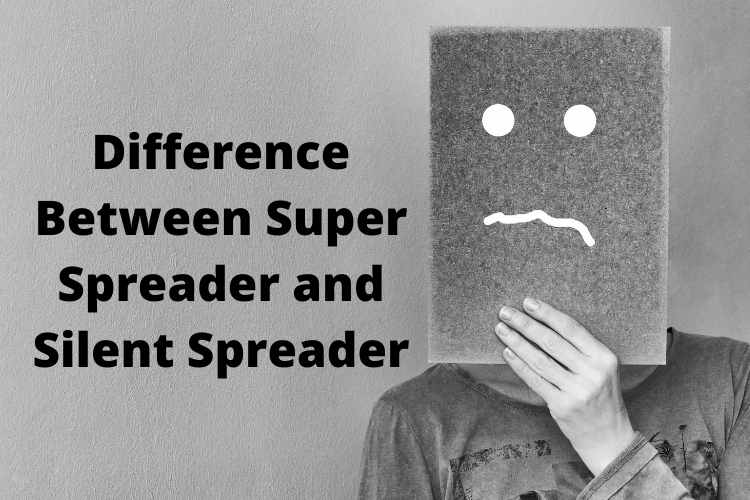Every day, it seems, we learn a new viral term to add to our vocabulary. Some of them are pretty perplexing. After the pandemic, two terms are becoming quite famous and these are Super Spreader and Silent Spreader. Here is the detailed difference between both the terms. In this article we are going to tell you the difference between Super Spreader and Silent Spreader.
What is a super spreader?
A super spreader is someone who infects a huge number of individuals with an infectious disease in a short period of time; the word is now commonly used to allude to Covid-19. The phrase can also refer to an event that serves to enhance the transmission of a virus by attracting huge numbers of individuals. Both of them infect a much larger number of persons than usual. Super-spreading events are generally enormous crowds of people gathered indoors with insufficient ventilation. Droplets are more easily ejected from an infected individual during singing activities, which increases the risk of infection. A choir rehearsal in Washington resulted in 53 instances of Covid-19 among the 60 persons who attended the session, which is an example of a super spreader event. Another example is an indoor wedding in Maine, which led to 270 cases of Covid-19.
Read: Difference Between Bacteremia And Septicemia
What is a Silent Spreader?
A silent spreader is someone who has no signs or symptoms of Covid-19 infection and does not feel unwell, yet nevertheless infects others with the virus. Someone who has Covid-19 but shows no symptoms of illness or feels unwell. These folks have the potential to spread the infection to a large number of others without even realizing it. Unless they are tested, they may never know they have it. Alternatively, people may not become ill for weeks after becoming infected. Because they contain high levels of coronavirus, children, and people under the age of 22 are believed to be major silent spreaders. Many people may experience just minor symptoms or be asymptomatic. A patient in Germany who tested positive for Covid-19 had only had contact with a person from China who seemed well and showed no signs of disease. The Chinese patient did not become obviously unwell with symptoms until days after the German patient did, and they were later diagnosed with the virus. Covid-19 had a silent spreading incident in this case.
Read: Difference Between Delta and Mu Variant
Difference Between Super Spreader and Silent Spreader
The words “super spreader” and “silent spreader” describe scenarios in which Covid-19 is disseminated among humans.
The phrase “super spreader” refers to a person or possibly an event that infects a high number of individuals with Covid-19.
The phrase “silent spreader” refers to persons who have no symptoms yet unwittingly transfer Covid-19 to others.
Covid-19’s fast spread to every corner of the globe, infecting millions, is due in part to both super and silent spreaders.
Super-spreading events are frequently associated with massive crowds of people. Silent spreaders aren’t often connected with infecting huge groups of people.
These are the most common differences between Super Spreader and Silent Spreader. We hope that you are now aware of both the terms.
Read: Difference Between Covid Toes and Gout
Conclusion:
I hope this article is enough to clarify the difference between Super spreader and Silent Spreader.

